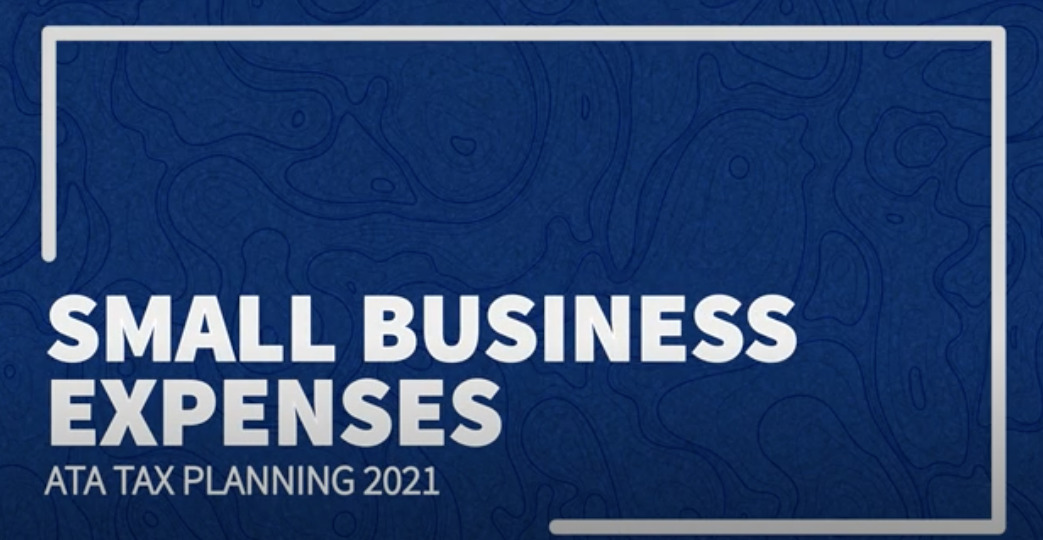Watch the tax planning video on small business expenses here.
Your business expenses can translate into tax write-offs, also known as deductions, as long as they’re “ordinary and necessary“—that is, common in your industry and essential to your business. When an expense meets those requirements for your business, you can deduct it.
Some of these include:
- Internet Expenses
- Office space
- And payment to employees
We hear many business owners wanting clarification on office space, including home offices, as well as business meal expenses.
Overlapping company and personal expenses
Sometimes an expense can be broken down between your business and your personal life. For example, if you use part of your home as your office and use that area solely for business purposes, then you can make a home office deduction. The standard method of deducting home office expenses involves calculating the percentage of your home that is used for business by taking the square footage of your office area and dividing it by the total square footage of your home.
Let’s say your office is 5% of your home’s square footage, so you can deduct 5% of the cost of your mortgage interest, utilities, insurance and other related expenses at tax time.
You can apply a similar model to the times you use your personal vehicle for business, by keeping track of miles driven and deducting based on the IRS’s standard mileage rate.
Common Non-Deductible Business Expenses
Some costs related to doing business cannot be deducted from your taxable income. Common examples include lobbying or political costs and penalties/fines. Additionally, entertainment costs such as tickets to a sporting event cannot be expensed. Prior to this year, only 50% of business meals were deductible. As part of the Consolidated Appropriations Act (2021), the deductibility of business meals is changing. Food and beverages will be 100% deductible if purchased from a restaurant in 2021 and 2022. This temporary 100% deduction was designed to help restaurants, many of which have been hard-hit by the COVID-19 pandemic.
The first thing you should do to help keep track of your small business expenses is to open separate business checking and savings accounts for your business. After that, ensure that you’re also keeping your business expenses separate from your personal expenses.
Small businesses contribute to local economies by bringing growth and innovation to the community. ATA walks alongside business owners to help overcome challenges in an efficient and experienced manner. To discuss business expenses in depth, contact one of our experts for a consultation.
